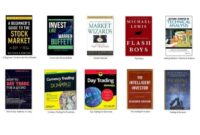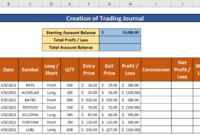Kicking off with Forex market participants, this opening paragraph is designed to captivate and engage the readers, setting the tone for a detailed exploration of the various entities involved in the Forex market. From retail traders to institutional investors, central banks, and hedge funds, each participant plays a unique role in shaping the dynamics of the market. Let’s delve into the world of Forex market participants and uncover their impact on currency trading.
Types of Forex Market Participants

Retail traders play a crucial role in the Forex market as individual investors who engage in currency trading for personal gain. They typically trade smaller volumes compared to institutional investors but collectively contribute to the overall market liquidity.
Role of Retail Traders
Retail traders often rely on technical and fundamental analysis to make trading decisions. They can access the market through online platforms provided by brokers and execute trades in real-time. While they may not have the same level of resources as institutional investors, retail traders can still influence short-term price movements through their collective actions.
Significance of Institutional Investors
Institutional investors, such as banks, hedge funds, and pension funds, play a significant role in the Forex market due to their large trading volumes. They often have access to advanced trading tools, research, and market insights, allowing them to make informed decisions on currency trades. Institutional investors can impact market trends and pricing due to the size of their positions.
Role of Central Banks and Governments
Central banks and governments are key participants in the Forex market as they can influence exchange rates through monetary policy decisions. Central banks intervene in the market to stabilize their currency or achieve specific economic goals. Government policies, such as trade agreements and tariffs, can also impact currency values.
Activities of Commercial Banks and Hedge Funds, Forex market participants
Commercial banks are active participants in the Forex market, facilitating currency transactions for their clients and engaging in proprietary trading. They provide liquidity and market-making services, contributing to price stability. Hedge funds, on the other hand, often engage in speculative trading strategies to profit from currency fluctuations. They can have a significant impact on market volatility depending on their trading positions.
Influence of Forex Market Participants
Retail traders play a significant role in impacting currency prices in the Forex market. These individual traders often make decisions based on technical and fundamental analysis, as well as market sentiment. Their collective actions can lead to price movements, especially in the short term.
Impact of Institutional Investors
Institutional investors, such as large banks, hedge funds, and investment firms, have the power to influence market volatility through their substantial trades. When these entities enter or exit positions in the market, it can create significant price fluctuations, especially in major currency pairs.
Central Banks’ Interventions
Central banks play a crucial role in influencing exchange rates through their interventions in the foreign exchange market. By adjusting interest rates, implementing monetary policies, or conducting currency interventions, central banks can directly impact the value of a country’s currency relative to others.
Role of Hedge Funds
Hedge funds are known for their speculative trading strategies that can create market trends in Forex trading. These funds often engage in large-scale trades based on complex algorithms, market analysis, and risk management techniques. Their actions can have a substantial impact on currency prices and market trends.
Strategies Used by Different Forex Market Participants

Retail traders, institutional investors, central banks, and hedge funds all employ various strategies in the Forex market to achieve their specific goals and objectives. These strategies range from technical analysis to fundamental analysis, risk management techniques, and speculative maneuvers.
Trading Strategies of Retail Traders
- Retail traders commonly use technical analysis to identify trends and patterns in price movements. They often rely on indicators like moving averages, RSI, and MACD to make trading decisions.
- Some retail traders also engage in scalping, day trading, swing trading, or position trading to capitalize on short-term or long-term market movements.
- Algorithmic trading and automated trading systems are increasingly being used by retail traders to execute trades based on pre-set criteria and parameters.
Risk Management Techniques of Institutional Investors
- Institutional investors implement strict risk management protocols to protect their capital and minimize losses. They use stop-loss orders, position sizing, and diversification strategies to manage risk exposure.
- Hedging is another common risk management technique employed by institutional investors to offset potential losses in one position by taking an opposite position in a correlated asset.
- Some institutional investors also utilize sophisticated risk management tools and models to assess and mitigate risk in their Forex trading activities.
Monetary Policy Implementation by Central Banks
- Central banks influence currency markets through monetary policy decisions, such as interest rate adjustments, quantitative easing, and open market operations.
- By altering key policy rates and liquidity conditions, central banks can impact exchange rates and inflation levels to achieve their economic objectives.
- Forward guidance and communication strategies are also used by central banks to signal their future policy intentions and manage market expectations.
Speculative Strategies of Hedge Funds
- Hedge funds engage in speculative strategies in the Forex market to capitalize on market inefficiencies and price discrepancies. They may use leverage, derivatives, and complex trading strategies to amplify returns.
- Carry trades, where hedge funds borrow in low-interest-rate currencies to invest in higher-yielding assets, are a common speculative strategy used to profit from interest rate differentials.
- Event-driven trading, macroeconomic analysis, and sentiment analysis are other speculative strategies employed by hedge funds to anticipate and exploit market trends and developments.
Regulatory Framework for Forex Market Participants

Forex market participants, including retail traders, institutional investors, central banks, and hedge funds, operate within a regulatory framework to ensure fair and transparent trading practices.
Regulatory Requirements for Retail Traders
Retail traders participating in the Forex market are subject to regulatory requirements imposed by financial regulatory bodies in their respective jurisdictions. These requirements often include obtaining a license to operate as a Forex trader, adhering to specific capital adequacy ratios, and complying with anti-money laundering regulations.
Oversight Mechanisms for Institutional Investors
Institutional investors engaging in Forex trading are typically regulated by government agencies or supervisory authorities that oversee their trading activities. These oversight mechanisms aim to monitor the risk exposure of institutional investors, ensure compliance with trading rules, and protect market integrity.
Role of Regulatory Bodies in Monitoring Central Banks
Regulatory bodies play a crucial role in monitoring the actions of central banks in the Forex market to prevent market manipulation and maintain stability. By overseeing central bank interventions, regulatory bodies help ensure a level playing field for all market participants.
Regulations Governing Hedge Funds
Hedge funds involved in Forex trading are subject to specific regulations that govern their trading activities, risk management practices, and disclosure requirements. Regulatory bodies impose these regulations to safeguard investors’ interests and maintain market stability.
In conclusion, the diverse range of participants in the Forex market brings a myriad of strategies, influences, and regulations into play. Understanding the roles and interactions of these players is crucial for navigating the complexities of currency trading successfully. Whether you’re a retail trader looking to enhance your strategies or an institutional investor seeking to optimize your trades, recognizing the significance of Forex market participants is key to achieving your financial goals.
Understanding currency pairs is essential for anyone involved in the forex market. By knowing how different currencies are paired together, traders can make informed decisions that can potentially lead to profitable outcomes. To learn more about this topic, you can check out this detailed guide on Understanding currency pairs.
As the cryptocurrency market continues to evolve, it’s crucial to stay updated on the top cryptocurrencies for 2024. Whether you’re a seasoned investor or just starting out, knowing which digital assets are performing well can help you make wise investment choices. For a list of the top cryptocurrencies to watch out for in 2024, you can visit Top cryptocurrencies 2024.
Crypto liquidity plays a significant role in the digital asset market, affecting how easily assets can be bought or sold without causing significant price changes. Understanding the concept of liquidity can help traders navigate the volatile crypto market more effectively. To delve deeper into this topic, you can explore more about Crypto liquidity.




